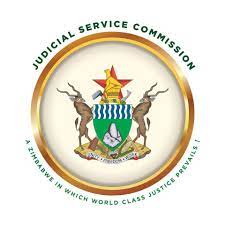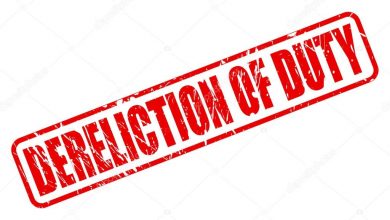Concerns raised over JSC’s handling of high court and administrative court judge selection

By Nqobani Nyathi
The cornerstone of any democratic society, or at least a society that aspires to be democratic, is the judiciary.
It is supposed to be the bedrock of fairness, the ultimate guardian of our rights and a shield against tyranny. But what happens when the very process designed to appoint those who safeguard justice itself becomes tainted and contrary to the constitutional requirements?
As a starting point, it is important to highlight a few basic things. The process for selecting judges must be transparent. It must be a process that ensures the appointment of individuals who are ready to uphold the constitutional values, which include the rule of law and human rights.
Judges, in a constitutional democracy like ours, are custodians of justice, appointed to interpret the law impartially and with integrity and consistency. Their commitment to these principles must be unwavering because they serve as the ultimate safeguard against the failures of those who are supposed to implement the Constitution.
Because of the important position that judges occupy, their appointment process is required to be subjected to scrutiny.
In the not-so-distant past, the process of appointing judges in Zimbabwe was shrouded in secrecy. Before the 2013 Constitution, there was no public participation in the process of appointing members of the judiciary. This raised serious concerns about judicial independence, as members of the judiciary were susceptible to political influences.
This lack of public participation, accountability and transparency eroded public trust in the judiciary and compromised its independence.
The 2013 Constitution sought to rectify these flaws. Drawing inspiration from countries like South Africa and Kenya, it introduced a new procedure aimed at promoting accountability. Public participation became part of the process as provided in the Constitution. Now the public can participate in the appointment of judges by nominating suitable candidates. Also, aspirant judges are supposed to be publicly interviewed to provide a first-hand view of candidates’ performances.
The significance of these public interviews cannot be overstated. Public interviews not only serve as a means of assessing candidates’ qualifications and fitness to hold office but also make the performance of candidates a matter of public record.
Despite these progressive reforms, the Judicial Service Commission (JSC) is committing a series of mistakes that not only violate the Constitution but also undermine the integrity of the judiciary.
The process of appointing judges is not merely an administrative task; it is a constitutional duty that must be performed diligently to safeguard the constitutional values and the very essence of democracy.
On 14 March 2024, the JSC took its first misstep. In its two adverts, it called for nominations to fill 10 vacancies in the High Court and one vacancy in the Administrative Court. In the adverts, it required aspiring judges to submit a medical report attesting to their physical and mental fitness. The approach taken by the JSC was regrettably misguided. The constitution requires that judges must be “fit and proper persons to hold office,” a standard that primarily concerns issues such as judicial independence, integrity and professional suitability. It is disappointing that the JSC, predominantly composed of experienced lawyers, would misinterpret this constitutional requirement to include a demand for medical reports.
This requirement not only infringes upon candidates’ right to privacy but also lacks transparency. The criteria used to assess fitness based on medical reports remain unknown to the public. Such a demand implies that certain health conditions could disqualify individuals from judicial office, a notion that is both discriminatory and contrary to the spirit of inclusivity and equality. Also, what do the members of the JSC know about interpreting medical reports?
The requirement for physical fitness is also particularly concerning as it may unfairly disadvantage aspirant judges with disabilities. It seems to have been an ill-thought-out requirement made without foresight, reflecting a fundamental misunderstanding of the Constitution and what it seeks to achieve.
Moving forward, on 4 April 2024, the JSC published a list of 61 aspirant judges of the High Court and eight aspirant judges of the Administrative Court whose nominations “were received and accepted” and said that they were set for a first stage of interviews set for 8 April 2024. The JSC’s decision to conduct interviews in stages is worrying. The purpose behind this approach remains unclear and raises suspicions about the transparency and fairness of the selection process.
Also, the directive for aspiring judges to bring laptops to the interviews, with the threat of disqualification for non-compliance, appears condescending and lacking in respect for prospective judges. It is also a puzzling requirement, considering that the constitution mandates the interview process to be purely public, to ensure transparency and accountability in the process.
The most egregious violation of the constitution occurred on 7 April 2024 when it was reported that aspiring judges were required to undergo an aptitude test. The Herald newspaper reported that “66 aspiring Judges to write aptitude test,” adding that “the results from the test are not disclosed to the public,” citing the JSC Secretary, Walter Chikwana. Therein lies the problem. This is a significant disregard for transparency and accountability that is contrary to the constitutional requirements of public interviews.
On 8 April 2024, the day of the interviews, the JSC only shared a still picture and a brief video clip of what was labelled as the first stage of judges’ interviews on its X account, with no further information provided.
On April 15 April 2024, another further shortlist of 36 aspirant High Court judges and three Administrative Court judges was published for the final stage, where public interviews are supposed to be conducted on a date that is yet to be known.
The constitution provides clear guidelines for the appointment of judges: advertise the position, invite nominations from the President and the public, conduct public interviews, prepare a list of three qualified nominees and submit the list to the President for appointment. Any deviation from these constitutional provisions undermines judicial independence and renders the process unconstitutional.
The Constitution is not for mere decoration. It is a blueprint for transparency, fairness and accountability. It is high time the JSC got back to basics and started following the script -the Constitution.






